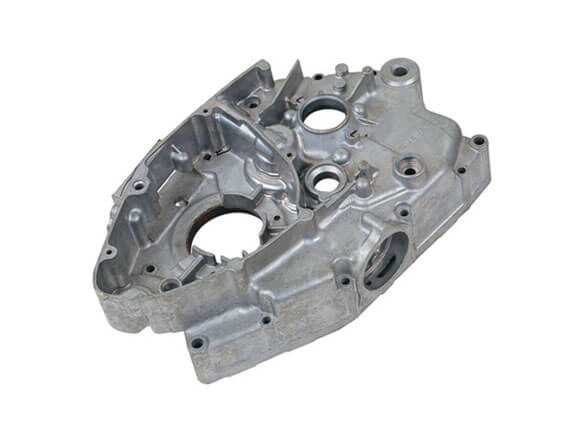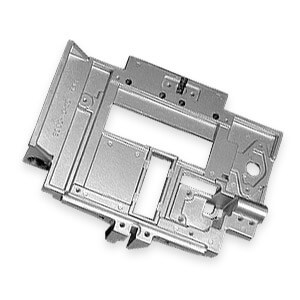Just How Shop Services Enhance Production Performance and High Quality in Industrial Applications
Factory services play an important duty in improving manufacturing performance and quality across different commercial applications. By implementing sophisticated steel spreading techniques, these services guarantee elements are manufactured with precision and uniformity. This not only reduces preparations yet likewise lessens waste, fostering far better cooperation in between suppliers and shops. The effect of high-quality elements on operational efficiency raises important inquiries about the future of industrial manufacturing. What technologies exist in advance in this progressing landscape?
The Role of Factory Solutions in Streamlining Production Processes

In addition, factories often provide knowledge in alloy development, making it possible for manufacturers to use innovative materials that enhance item performance. The partnership between producers and foundries fosters a far better understanding of production requirements, resulting in optimized procedures and boosted product layouts. By leveraging foundry solutions, suppliers can achieve greater versatility, adapt to altering market needs, and preserve competitiveness in the sector. Overall, the role of foundry solutions is necessary in assisting in an extra effective and economical manufacturing landscape.
Advanced Technologies in Shop Workflow
Cutting-edge technologies are changing factory operations, considerably boosting efficiency and precision. Automation plays a necessary duty, with robotic systems streamlining recurring jobs such as molding and product handling. Furthermore, advancements in computer-aided design (CAD) and computer-aided manufacturing (CAMERA) systems enable factories to produce intricate geometries with higher precision and lowered material waste.
The integration of synthetic intelligence (AI) and machine knowing improves quality control by keeping an eye on procedures in real-time and predicting potential problems prior to they take place. Making use of advanced products, such as lightweight alloys and composites, even more boosts the efficiency characteristics of cast products.
3D printing technology is reinventing prototyping and tooling, enabling for rapid customization and reduced lead times. Collectively, these sophisticated modern technologies not just elevate manufacturing performance but also ensure that the final products meet stringent high quality criteria, placing shops at the forefront of contemporary commercial applications.
Decreasing Lead Times Via Reliable Factory Practices
Efficient factory practices play an essential function in minimizing lead times within production atmospheres. By applying streamlined production procedures and advanced organizing techniques, producers can boost operations and maximize source allocation. These renovations not only increase result but likewise add to general functional performance.
Streamlined Production Processes
Streamlining production procedures is essential for lowering lead times in the manufacturing field. Reliable shop methods, consisting of optimized workflows and resource management, play a crucial function in achieving this goal. By reducing waste and enhancing interaction among groups, shops can greatly boost their operational effectiveness. The execution of standardized treatments also adds to consistent high quality and faster turn-around times, making it possible for makers to react even more swiftly to market demands. In addition, the integration of sophisticated innovations, such as automation and real-time tracking systems, aids in identifying traffic jams and promoting timely interventions. Generally, a concentrate on structured manufacturing procedures not only accelerates lead times yet additionally boosts the general competitiveness of commercial applications, making sure that products fulfill consumer expectations effectively.
Advanced Organizing Techniques
Reliable production procedures naturally lead producers to explore innovative organizing strategies as a way to even more minimize lead times. By utilizing advanced visit the site formulas and software, factories can enhance workflows, straightening manufacturing schedules with need forecasts and resource availability. Techniques such as Just-In-Time (JIT) organizing decrease supply prices while ensuring timely material delivery, thus boosting functional effectiveness. In addition, integrating real-time data analytics permits foundries to prepare for potential delays and readjust schedules proactively. This versatility not only simplifies operations but additionally increases overall performance. Joint planning with clients and vendors can foster a much more synchronized supply chain, additional decreasing lead times. Inevitably, these sophisticated organizing techniques equip factories to accomplish higher effectiveness and superior high quality in their production procedures.
Guaranteeing Precision and Top Quality in Steel Spreading
Guaranteeing accuracy and quality in steel spreading requires a precise technique that incorporates every stage of the manufacturing process. This process begins with cautious layout and engineering of the mold and mildews, assuring they can hold up against the liquified metal's temperature and pressure. The selection of top notch basic materials is crucial, as impurities can compromise the end product.
As soon as the products are prepared, precise temperature level control throughout melting and putting is essential to achieve the desired properties in the cast steel. Checking solidification and cooling prices additional warranties dimensional accuracy and surface area coating.
Quality control techniques, such as non-destructive screening and evaluation, are critical to recognizing problems early while doing so. Aluminum Casting Company. Additionally, using competent employees who understand the subtleties of steel spreading adds significantly to maintaining high standards. Generally, these methods jointly enhance the dependability and performance of actors elements in various commercial applications
Reducing Waste and Maximizing Source Use

In addition, recycling scrap metal within the foundry itself can substantially decrease waste, changing spin-offs into usable sources. Lean making concepts also contribute to lose reduction by simplifying processes and removing unnecessary actions, bring about a lot more efficient operations.
Additionally, normal maintenance of equipment assurances peak performance, avoiding breakdowns that can cause thrown away products. By concentrating on these techniques, foundries not just reduce prices but likewise add to sustainable techniques, straightening with the expanding demand for environmentally responsible manufacturing approaches in commercial applications.
The Affordable Advantage of High-Quality Parts on the market
Premium elements offer a considerable competitive advantage in the shop market, where accuracy and toughness are extremely important. Producers that prioritize superior materials and that site craftsmanship can boost product efficiency and reliability, causing increased consumer fulfillment. This advantage is specifically apparent in sectors such as automotive and aerospace, where part failure can have catastrophic consequences.
Additionally, high-quality parts typically cause lower upkeep prices and extended item lifespans, which can be attractive selling factors for potential clients. As market demands expand for lasting and effective modern technologies, the focus on high quality comes to be also a lot more critical. Firms that purchase top notch foundry solutions not only enhance their production processes however additionally distinguish themselves from rivals that may give up quality for expense savings. The commitment to top quality components ultimately equates into a stronger market setting and long-term company success.
Regularly Asked Inquiries
What Kinds of Products Do Foundry Services Usually Collaborate With?
Foundry services commonly deal with steels such as light weight aluminum, steel, brass, and iron, together with different alloys. They also manage products like composites and ceramics, accommodating diverse industrial requirements and requirements in manufacturing procedures.
Just How Do Factory Services Influence Overall Supply Chain Administration?
Foundry solutions considerably enhance supply chain administration by simplifying material sourcing, minimizing preparations, and guaranteeing consistent quality. Their capacity to give customized remedies cultivates collaboration amongst stakeholders, ultimately enhancing total functional efficiency and responsiveness in production.
What Industries Benefit Many From Shop Providers?
Industries such as vehicle, customer, construction, and aerospace products significantly take advantage of shop services. These industries rely upon precision castings to satisfy rigid high quality requirements and boost their total manufacturing procedures and item efficiency.
Are Factory Solutions Eco friendly and lasting?
Foundry solutions can be lasting and eco-friendly, particularly when utilizing innovative technologies and processes - Precision aluminum casting. Advancements such as recycling materials, minimizing emissions, and maximizing power use add to reducing their environmental impact in industrial applications

Just How Can Firms Pick the Right Foundry Company?
Business can select the right shop solution copyright by evaluating know-how, manufacturing capabilities, top quality qualifications, modern technology used, customer testimonials, and sustainability methods while ensuring alignment with their details project demands and long-lasting service goals.
Shop services play a vital role in enhancing manufacturing performance and high quality across various industrial applications. The cooperation in between manufacturers and foundries fosters a much better understanding of production requirements, leading to optimized processes and boosted product designs. Effective foundry practices play a vital function in minimizing lead times within manufacturing atmospheres. By using sophisticated algorithms and software program, shops can enhance process, lining up production timetables with need projections and resource schedule. Business that invest in high-grade shop solutions not click reference just boost their production procedures yet additionally differentiate themselves from competitors who might give up high quality for price financial savings.